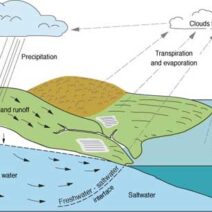It is often said that the Earth is our planet, our home, and, in many ways, our only cradle. A perpetual nurturing ground is being suffocated under a blanket of excess carbon emissions, pollution, and waste. The weight of our collective actions hang in the atmosphere like a looming shadow, distorting the kaleidoscope of life that has flourished here for millennia. However, within each of us lies the potential to cultivate an environment that not only sustains us but detoxifies the ailments we have inflicted upon our world. This presents an intriguing proposition: what can we do today to commence the healing journey of our ailing planet? Herein lies a comprehensive exploration of individual actions that can cumulatively yield profound impacts in mitigating global climate change.
First and foremost, a radical rethinking of our energy consumption habits is imperative. We live in a time where electricity flows like an invisible river, empowering our daily lives but often through a source of fossil fuels, which bubble with the toxicity of historical negligence. Transitioning to renewable energy sources, such as solar or wind power, within our homes can significantly curtail our carbon footprints. It is akin to swapping a roaring campfire for a mellow candlelight; the warmth remains, but the smoke dissipates into the air, replaced with tranquility. Those who cannot implement personal systems can advocate for community or governmental policies that encourage green energy initiatives and infrastructure investments.
Next, the flora and fauna around us serve as vibrant tapestries, woven with life. Engaging in urban gardening or supporting local agriculture fosters biodiversity, cleanses the air, and sequesters carbon—a botanical bulwark against climate change. Think of the act of planting a seed as a profound metaphor for hope and renewal. Each sprouting tendril burst forth is a small declaration that we are indeed capable of nurturing our environment. Moreover, patronizing farmers’ markets or community-supported agriculture (CSA) reduces the carbon released through transportation, promoting local economies while establishing a direct connection between consumer and producer.
In moving from the realm of energy and agriculture, we confront the omnipresent specter of consumerism. Every product we purchase is imbued with a lifecycle, from extraction to disposal, leaving behind a trail of emissions akin to breadcrumbs leading into a dusky forest. Emphasizing conscious consumerism—choosing sustainably sourced, ethically produced items—can help combat the rampant waste that characterizes modern society. Opting to buy second-hand not only extends the life of existing goods but also serves as a statement against the mass production prevalent in this age of disposability. The metaphor of a phoenix rising from the ashes embodies this principle; by repurposing and recycling, we ignite a transformative fire that reshapes our resources.
Moreover, transportation habits merit examination. The allure of the automobile—with its tethered conveniences—often blinds us to alternative modes of travel. Opting for public transportation, cycling, or even walking for short distances serves as a practical and eco-friendly approach to mitigating our impact. Imagine the exhilaration of the wind kissing your face as you glide on a bike, fostering not only a healthier body but a healthier planet. Carpooling or working remotely can further reduce greenhouse gas emissions while nurturing connections with those around us.
The tapestry of education and advocacy cannot be overlooked. Engaging in conversations surrounding climate change, promoting awareness, and advocating for policy change whether at a local, national, or global level can ignite sparks of action within communities. Picture an archer, steady and focused—the arrow representing varied messages of environmental education aimed at hitting the target of change. This transformative knowledge has the power to educate minds and hearts alike, galvanizing collective action toward a shared goal of sustainability.
Furthermore, individual and communal efforts in reducing waste should align with a broader understanding of ecological impact. Foraging for alternatives to single-use plastics, composting organic waste, and participating in cleanup initiatives can dramatically diminish harm to natural ecosystems. The metaphor of a river flowing free of debris aptly encapsulates the clarity and purity we should aspire to achieve in our daily practices. Reducing waste not only benefits the environment but fosters an attitude of stewardship, as individuals embrace their role as caretakers of Earth.
Lastly, the act of reflection—taking a moment to truly consider the impact of our existence—can unveil the pathways toward healthier lifestyle choices. From integrating mindfulness practices that promote a connection with nature to exploring minimalistic living, the nuances of our choices reverberate beyond our immediate surroundings. Envision a butterfly flapping its delicate wings, the subsequent storm felt miles away; every small action contributes to a larger ecological narrative, driving us toward a more sustainable existence.
In summation, the road to diminishing global climate change does not rest solely on grand gestures but upon the collective contributions of individuals. By embracing a mindset steeped in sustainability and conscious decision-making, the everyday choices we make resonate like ripples across a still pond. Each person, a vital thread in the intricate fabric of existence, can engage in practices that tilt the balance toward healing our world. United in our efforts—a cacophony of small, determined voices—we can carve a brighter and healthier future out of the chaos of our current climate crises.


